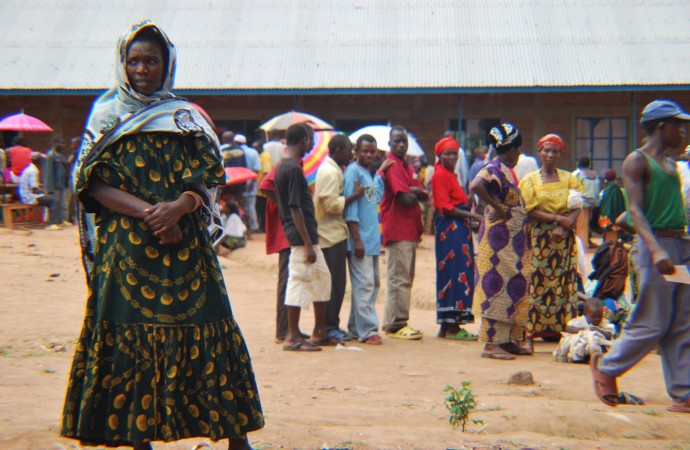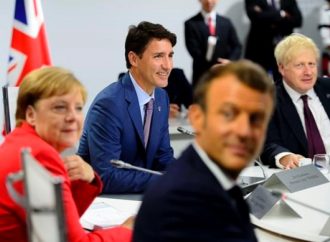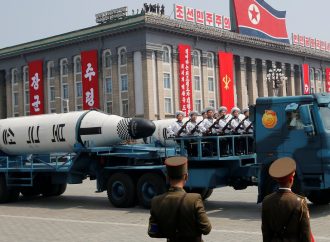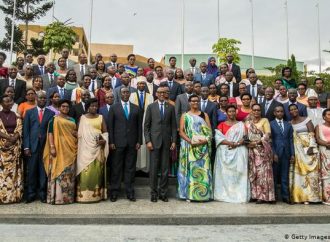By Althea-Maria Rivas and Gabrielle Bardall
Supporting women’s public participation and political inclusion should be a critical objective of Canada’s contribution to international democracy assistance, particularly in light of the current government’s emphasis on feminism. We must prioritize gender equality across all political support programs and increase the number of projects in this field. Political inclusiveness is a basic component of development, peace, and justice and offers a proven return on investment. Themes and objectives should include achieving and going beyond descriptive representation, moving beyond patriarchal institutions, and engaging as a partner, not a provider.
Achieving and going beyond descriptive representation
Achieving a “critical mass” of women in elected bodies is a core goal and it should remain a focus of aid investment, including supporting the appropriate design of electoral quotas. A more important objective, however, takes us beyond numbers and focuses on supporting space for women to make substantive contributions to public life. While these programs already exist, greater emphasis on South–South learning would be helpful. A key starting point would be an increase in funding to local women’s organizations to support political activities and advocacy efforts. Further examples include offering assistance programs that train and provide mentoring opportunities to work with women in elected offices in designing and advancing their policies, establishing women’s caucuses, and supporting constituents’ outreach. Likewise, civic and voter education activities build awareness and encourage women’s participation. Technical guidance to electoral commissions lowers barriers for women’s access to polls. Still other measures support legal reform initiatives to abolish discriminatory laws and encourage supportive legal frameworks, including reducing violence against women in politics.
Moving beyond patriarchal institutions
Naming patriarchy as a problem is an important part of moving beyond it. Patriarchal systems are a major factor why women, even in political systems where they are highly represented in government, continue to be marginalized within the governance process itself. Without challenging gender norms and existing power imbalances between women and men, discriminatory practices not only continue but are often reinforced. Inserting women into institutions with embedded systems of patriarchy fails to address the roots of exclusion and may reproduce the patriarchal structures that place women in subordinate positions. A gender lens is more appropriate than a narrow focus on women and girls since the responsibility for transforming the situation is placed solely onto them. Instead, seeking change through a more fundamental shift in relationships is essential. For long-term change, of course, it is essential to work with men and boys to enhance political inclusion and empowerment.
In light of this, it is necessary to look beyond both descriptive and substantive representation in political office to consider the broader forms of politics that shape gender injustice and hinder inclusive political participation. Reflecting the importance of history and institutions on gender relations, such an approach would emphasize women’s political role during critical moments of state transformation. In addition, informal institutions and spaces — such as village councils, shuras, tribal structures, and associations — are all areas that require women’s leadership.
In designing new approaches at the country level, a power-analysis approach can identify spaces of change for women’s political participation and opportunities for proactive engagement in surmounting patriarchal constraints. This may mean engaging with institutions that most frequently reproduce state-patriarchy (schools, religious institutions, and media) as well as legal discriminations and systems (including electoral system design).
Engaging as a partner, not a provider
Today Canada is 63rd in the world in terms of women in parliament (26%), behind many of the countries that we assist. We come to the table as global partners in this endeavor, recognizing the need to learn and improve alongside the states we support. We must adopt the view that we are engaging in a global dialogue that will only advance not by teaching others about the Canadian experience but by sharing experiences and learning from others. Heard on an equal footing, the exceptional stories and experiences of women from around the world about overcoming obstacles to political inclusion, advancing women’s rights, and challenging patriarchy can reinvigorate our own efforts back home.
When we talk about institutions, we must also look within. International democracy assistance is a historically male-dominated profession. Short-term electoral exigencies often conflict with longer-term gender objectives. Assistance structures, values, and norms have not been gender-sensitive and indirect structures of accountability often isolate and deprioritize gender objectives. Dangerous locations, long hours, frequent relocations from election to election, and non-family hardship postings are real barriers to entry or advancement for women in the profession, reinforcing the cycle of embedded patriarchy. In redefining its engagement, Canada should proactively hold democracy assistance providers accountable for meeting gender goals both in projects and in institutions.
There is so much work yet to do, and yet so little information. A shift in our approach to women’s political participation, however, may pave a wider pathway for empowerment and increased solidarity among those ready to contribute to societies that are more just for all. The burning need to reframe the discussion around gender and political inclusiveness requires a feminist lens aimed at doing just that.
Dr. Althea-Maria Rivas (York University) is an Assistant Professor in the Department of Political Science. Her research focuses on the politics of international intervention, post-conflict violence and gender, peace and security. In 2014, she was awarded the Cedric Smith Prize for peace and conflict research by the UK Conflict Research Society. She holds a PhD in Development Studies from Sussex University and completed a postdoctoral fellowship at the University of Bath. Her academic career is complimented by 15 years of experience working with international organizations and civil society in 20+ countries across the Middle East, Asia, and Africa.
Dr. Gabrielle Bardall (Pierre Elliott Trudeau Foundation Scholar) is an expert in electoral assistance, working with UNDP, UN Women, IFES, the Carter Center, and others in over 3 dozen countries worldwide. She has a PhD from the Université de Montréal and she was a 2012 Pierre Elliott Trudeau Scholar. An alumnus of the Women’s Campaign School at Yale, she holds an APSA Congressional Fellowship for 2016–2017.
Views expressed here are solely those of the authors and do not reflect the positions of York University or the Pierre Elliott Trudeau Foundation.










